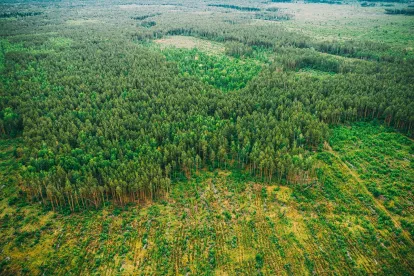On Wednesday, October 6, Sen. Brian Schatz (D-HI) and Reps. Earl Blumenauer (D-OR) and Brian Fitzpatrick (R-PA) released the Fostering Overseas Rule of Law and Environmentally Sound Trade (FOREST) Act, which seeks to reduce commodity-driven illegal deforestation around the world. The legislation creates a risk-based framework for improving transparency in companies’ global supply chains; provides financial and assistance-based incentives to reduce illegal deforestation; adds deforestation to financial criminal statutes; and establishes a purchasing preference for deforestation-free products in the federal procurement process. The bill also establishes an advisory committee, made up of companies and civil society groups, to inform its implementation.
Most notably, the bill would require importers, starting one year after enactment, to certify that they have exercised reasonable care to ensure that certain goods made from certain covered commodities were not produced on illegally deforested land. For imports from countries at high-risk of deforestation, importers may be required to provide detailed information on their full supply chain and measures taken to ensure the commodity was not produced on illegally deforested land. The Office of the U.S. Trade Representative would be tasked with developing a list of covered commodities – including palm oil, soybeans, cattle, rubber, pulp, and cocoa – and covered products, as well as to identify countries that do not have adequate and effective protections against commodity-driven illegal deforestation.
The FOREST Act has been endorsed by nearly 40 environmental and human rights advocacy groups. Further information on the bill, including a section-by-section summary and the full bill text, can be found here. If enacted, the bill’s certification requirements would place significant new due diligence burdens on commodities critical to a wide range of downstream products.





 />i
/>i

